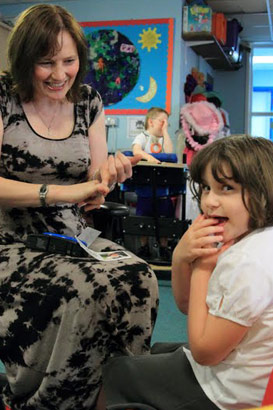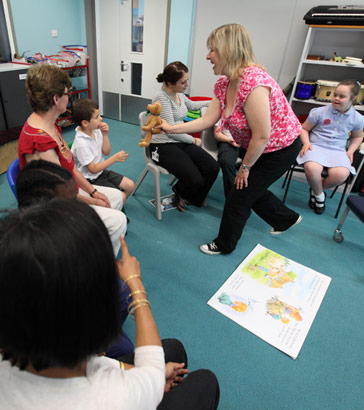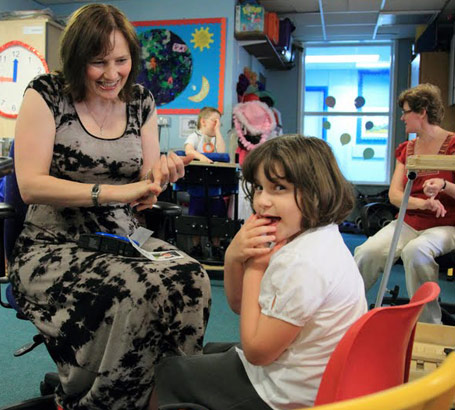The role of mothers
Mothers are central in many families, tend to carry out the bulk of household chores and childcare, and are the major carers
throughout all the regions of the world. (Mittler, 1995)
The literature suggests that mothers of children with disabilities experience ‘more documented challenges, stigma, and
stress than mothers of neurotypical developing children or fathers’. (Jones, 2011)
These mothers:
- Felt that they bore the burden of responsibility and problem-solving for their child with disabilities, although with significant support from other family members. (Hendriks et al, 2000; Kurt et al, 2004)
- Were more likely to express a need for ‘someone to talk to’ outside the family. (Hendriks et al 2000)
- Had increased care-taking responsibility, compared with mothers of typically developing children. (Hautamäki, 1997)
- Had often amended their ‘life project’ goals. (Hautamäki, 1997)
- Had more restricted leisure activities and different work patterns and, when they did work, there were high levels of leave from work due to illness. (Hautamäki, 1997)
I have a huge sense of lack of freedom, while I absolutely love E and
I’m glad he’s here and I wouldn’t change him, I have a huge feeling of – it’s a bit like serving a
prison sentence and you’ve done no crime.
Kingston, 2007
And I still have some of those [long-time, formerly close] friends...
but they don’t get it either and these are great, great women – really good women but I don’t talk to them about
Matt much anymore because it’s impossible. I will mention stuff and they will ask and I appreciate that but you just
can’t really get it unless you know and you walk in those shoes.
‘Lisa’ in Jones, 2011
Jack’s joy is my joy. What he loves, what he needs, and seeing
him enjoy all the simple things – that’s my joy. At the end of the day, I am going to fight hard for him, but at the
end of the day, that’s not what really brings me joy – what brings me joy is just seeing him truly content (cry) and
okay – you know?
‘Kay’ in Jones, 2011

I once evaluated why looking after a child with complex needs gives rise
to such high levels of stress, anxiety, frustration and exhaustion for the family – in particular the main caregiver. The
love that I have for my child totally negates the complexity of his life and the consequences that has for the family both
physically and emotionally.
The stress, anxiety, frustration and exhaustion that I have experienced is categorically initiated from the extended world
– namely, the service providers and educators. Central policies and initiatives are very reassuring, but the cruel reality
is that they are to little effect as service providers and educators continue to operate within their comfort zones. I will
readily refer to my family situation as the new generation of disability, and the brutality of it is that you learn to survive
on your own.
(Godden, 2010)

A literature review carried out by Jones (2011) discovered that most of the literature written about mothers of children with learning disabilities focuses on stress and coping. In addition to those points above, the literature noted:
- Mothers experienced more distress, higher stress and emotional and physical strain than fathers, and had a higher risk of poor health and lack of well-being.
- Stigmatisation of mothers belonging to some cultural groups.
- If personal, economic, and educational resources were available to the mother, there was less stress for both mother and father.

In her literature review, Jones (2011) reports:
Those parents who had no outlet for their stress such as respite care for their child, therapy for themselves, or other forms
of support such as a support group, were more stressed than those with those outlets.
What are the challenges for mothers in your school? Think about ways in which your setting could change its practice to reduce
stress and provide support.
References
Godden, S. (2010) Case study: a mother’s experience. In: B. Carpenter (2010) The Family Context, Community and Society.
London: Specialist Schools and Academies Trust (now The Schools Network).
Hautamäki, A. (1997) Mothers - stress, stressors and strains: outcomes of a cross-Nordic study. In: Carpenter, B. (ed.)
Families in Context: Emerging Trends in Family Support and Early Intervention. London: David Fulton.
Kingston, A. (2007) Mothering Special Needs: A different maternal journey. London: Jessica Kingsley.
Kurt, O., Cavkaytar, A. and Kircaali-Iftar, G. (2004) The correlations between perceptions of mothers of children with
mental retardation about their families and various family variables, paper presented at the European Dimension of Special
Education: Emergence of a Different Profile conference, Thessaloniki, Greece.